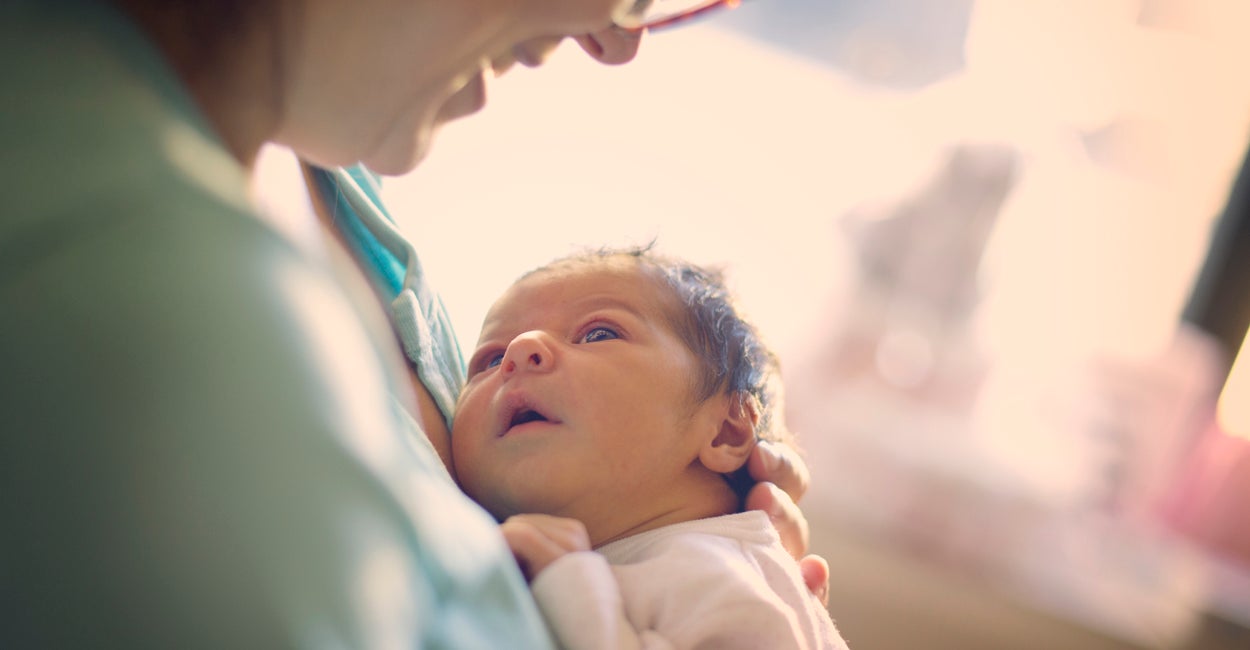The Supreme Court will hear oral arguments in a major abortion case, Dobbs v. Jackson Women’s Health Organization, on Wednesday. Here’s what you need to know about the facts of the case, what’s at stake, and how to think about this consequential moment.
Explaining the Moment
Life is our most basic human freedom, and it should be protected in public policy. From the moment of conception, every human being has inherent dignity and worth. Our laws should protect innocent human lives, including those not yet born, and society should support women who face challenging or unplanned pregnancies.
The Daily Signal depends on the support of readers like you. Donate now
To that end, policymakers have enacted hundreds of life-affirming laws at the state level (more than 500 in the past decade alone). But Supreme Court decisions like Roe v. Wade (1973) and Planned Parenthood v. Casey (1992) have prevented the American people, through their elected representatives, from protecting unborn human life prior to viability (the point at which a child can survive outside the womb).
>>> WATCH: Could This Case Overturn Roe v. Wade?
Dobbs v. Jackson Women’s Health Organization presents an opportunity for the Supreme Court to correct a grave constitutional error and overturn Roe v. Wade, returning abortion policy to the states and the American people.
Background on Dobbs v. Jackson
In 2018, Mississippi enacted the Gestational Age Act, which protects unborn children after 15 weeks’ gestation (a typical pregnancy lasts 40 weeks), with exceptions for a medical emergency or a severe fetal abnormality.
The state sought to enact a policy that protects unborn children, women, and the integrity of the medical profession, citing scientific facts about prenatal development and the numerous health risks associated with abortion.
Pro-abortion advocates promptly challenged the law, and under current Supreme Court precedent—in which a “court must follow earlier judicial decisions when the same points arise again in litigation”—lower courts blocked the law from going into effect. In June 2020, Mississippi appealed all the way to the Supreme Court, and in May 2021, the Supreme Court agreed to hear the case.
The Question Before the Court
Dobbs v. Jackson presents the Supreme Court with one straightforward question: Are all pre-viability bans on elective abortion unconstitutional (that is, can states protect unborn children before they are able to survive outside the womb)?
In answering this question, the court must confront its earlier decisions like Roe w. Wade (1973) and Planned Parenthood v. Casey. In Roe v. Wade, the Supreme Court established the “viability rule,” that a state may prohibit abortion only after a child can survive outside the womb. In 1992, Planned Parenthood v. Casey affirmed that this is Roe v Wade’s “essential holding,” adding that a state may not impose an “undue burden” on a woman’s right to have an abortion.
Mississippi’s Argument and the Policy Impact
Mississippi compellingly argues that contrary to the Supreme Court’s decision in Roe v. Wade, nothing in the Constitution’s text, structure, history, or tradition supports a constitutional right to abortion. As a result, Mississippi has just as much authority to legislate on abortion policy as other subjects, and the prohibition of abortion after 15 weeks ought to stand.
In addition to being unmoored from the Constitution, the viability standard is fundamentally subjective, vague, and unworkable. In 1973, viability was considered to be approximately 28 weeks’ gestation. Today, 24 weeks is widely accepted, and babies are surviving even earlier—some as early as 21 weeks, such as Micah Pickering.
In the last half-century, viability has shifted by a month and a half. What will another 50 years of scientific advancement bring? The “viability standard” imposed by the Supreme Court is ultimately an arbitrary line made without scientific analysis or justification and has prevented much state policymaking on abortion to bring the law in line with the science.
Should the Supreme Court change course on Roe v. Wade, abortion policy would return to the states and the American people, through the democratic process, could further address outdated and extreme abortion laws with policies that are not subject to the arbitrary and unworkable viability standard.
Rather, policymakers could craft laws that acknowledge the humanity of children in the womb and reflect public sentiment that supports protecting unborn children before and after viability.
What’s at Stake?
While policymakers have successfully enacted life-affirming laws, such as informed-consent requirements, mandatory reflection periods, and prohibitions on the inhumane partial-birth abortion procedure, outdated abortion jurisprudence has blocked much state policymaking on pre-viability abortions that accounts for advances in modern science and technology.
Notably, most Americans support significant restrictions on abortion, but because of Roe v. Wade, America is an outlier when it comes to international abortion policy. We’re one of only seven countries in the entire world that allows elective abortion after 20 weeks—we’re in the company of human rights violators like China and North Korea.
America is an outlier when it comes to earlier restrictions, as well: A recent study found that “47 out of 50 European nations limit elective abortion prior to 15 weeks,” the point at which Mississippi draws a line in the Gestational Age Act.
Overturning Roe v. Wade wouldn’t mean that abortion in America would immediately be prohibited. It would mean that the American people in their respective states, through their elected representatives, could establish policies that account for advances in modern science and technology as well as pro-life shifts in public sentiment.
The pro-life movement would still have much work to do—states like Mississippi would pursue policies that differ from those in, say, California.
Beyond policy debates about protecting life in law, there is still much work to be done to promote a culture of life more broadly. Women across the country facing challenging or unplanned pregnancies would continue to be able to look to civil society, including churches and thousands of community-based pregnancy resource centers, for support.
A Chance to Change Course
Most Americans don’t support the abortion-on-demand regime imposed by Roe v. Wade. They support life-affirming policies that aren’t allowed under Roe v. Wade. The Supreme Court’s abortion jurisprudence has distorted our Constitution, done nothing to settle the abortion debate in our country, and poisoned our laws, courts, and culture.
The Constitution does not protect a right to abortion. Dobbs v. Jackson is an opportunity for the Supreme Court to correct a grave error. Then, states would be able to pursue additional policies that acknowledge the humanity of children in the womb.
Have an opinion about this article? To sound off, please email letters@DailySignal.com and we’ll consider publishing your edited remarks in our regular “We Hear You” feature. Remember to include the URL or headline of the article plus your name and town and/or state.































